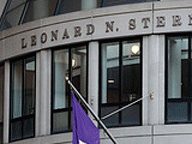Faculty News
—
In an op-ed, Prof. Nouriel Roubini discusses political uncertainty in emerging markets
—

Excerpt from Project Syndicate -- "According to the positive narrative about emerging markets, industrialization, urbanization, per capita income growth, and the rise of a middle-class consumer society were supposed to boost long-term economic and sociopolitical stability. But in many countries recently wracked by political unrest – Brazil, Chile, Turkey, India, Venezuela, Argentina, Russia, Ukraine, and Thailand – it is the urban middle classes that have been manning the barricades."
Faculty News
—

Excerpt from Project Syndicate -- "According to the positive narrative about emerging markets, industrialization, urbanization, per capita income growth, and the rise of a middle-class consumer society were supposed to boost long-term economic and sociopolitical stability. But in many countries recently wracked by political unrest – Brazil, Chile, Turkey, India, Venezuela, Argentina, Russia, Ukraine, and Thailand – it is the urban middle classes that have been manning the barricades."



















